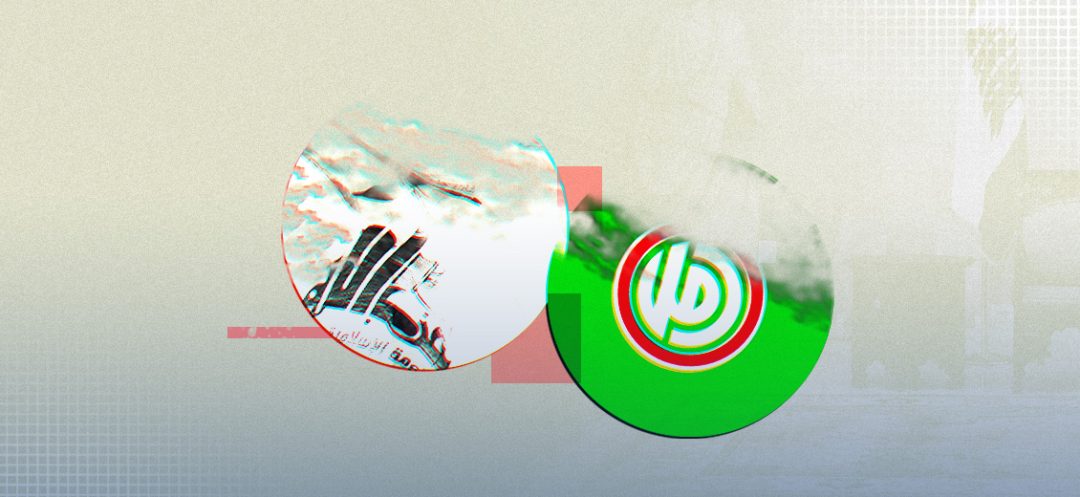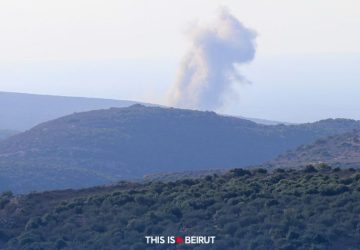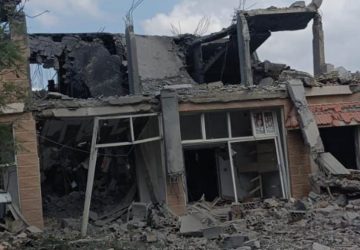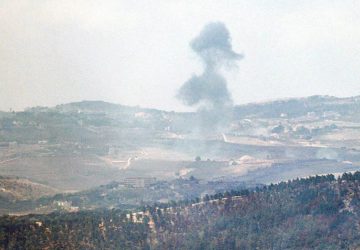Listen to the article
Since the beginning of the presidential vacancy on October 31, 2022, the Shiite duo (Amal-Hezbollah) has not taken any significant steps to expedite the election of a new president. Their actions have varied from casting blank ballots to voting for Sleiman Frangieh for the first time during the 12th session on June 14, 2023, during which Frangieh secured 51 votes against the 59 votes received by former minister Jihad Azour, the candidate backed by the opposition coalition and the Free Patriotic Movement (FPM).
As previously mentioned, the Shiite duo doesn’t want to elect a president, which is why they support House Speaker, Nabih Berri’s initiative put forward on September 1, 2023: “A seven-day dialogue, followed by open sessions with consecutive rounds until a solution is found.” In this regard, Berri questioned the refusal of the Lebanese Forces (LF) and the Kataeb party to embrace any format for dialogue and consensus. While the Shiite duo is upholding its unwavering position, the opposition underwent a significant shift. Despite MP Michel Mouawad garnering substantial support, he was sidelined in favor of Jihad Azour during the 12th electoral session, due to the rejection by MPs aligned with the Moumanaa, also known as the “Resistance” axis. However, the Shiite duo’s position didn’t alter, failing to meet the opposition halfway. Amidst this inflexibility, in an attempt to navigate through the Moumanaa’s steadfast deadlock, and for the sake of emphasizing this camp’s responsibility for the deliberate obstructions, the opposition coalition called for consensus on a third candidate: an independent president able to implement reforms, one who is recognized both locally and regionally, and in line with the Paris Quintet specifications. However, the Shiite duo did not amend their position, adhering to dialogue as outlined by Nabih Berri, with Sleiman Frangieh confirmed as their final candidate.
Despite repeated efforts to elect a president, the Shiite duo squarely placed the blame for the election gridlock on the opposition camp. They also held the Christians accountable, as per the Constitution, the president is Christian. Furthermore, they accused them of stalling the election for personal, sectarian, or political reasons. The House Speaker conveyed this sentiment to Vatican Secretary of State Cardinal Pietro Parolin. The latter’s response was: “Everyone is responsible, not only one group.” In this context, members of the opposition camp are pondering who bears the responsibility for the current presidential deadlock—themselves or the Moumanaa axis?
Returning to the core issue of the presidential dossier, sources within the opposition assert that “Hezbollah is committed to the following equation: no to a president who would betray the “Resistance”, who is deemed unreliable and cannot ease their concerns. This principle guides their support for candidate Sleiman Frangieh. According to these sources, the Shiite party firmly opposes “addressing the presidential issue until a ceasefire is secured in Gaza.” Hezbollah conveyed this position to Western security and political officials who recently visited the party’s central HQ in Haret Hreik. Opposition sources argue that the Moumanaa’s parties led by Iran, are focused on Gaza and not overly concerned about the presidential election.
Hezbollah’s assertion that there is no connection between Gaza, the southern front, and the presidential election is misleading. Their reluctance to engage in discussions on the presidential issue or take any proactive steps, despite their clear awareness of their substantial influence and responsibility in this matter is blatant. Consequently, the opposition questions why the Shiite duo chose to oppose their initiative instead of collaborating to facilitate the presidential election, despite claiming a separation between Gaza and the electoral process. Nabih Berri and the Shiite duo’s MPs promptly echoed this critical stance towards the opposition’s efforts.
Many questions can thus be raised. Why hasn’t the Shiite duo helped in merging initiatives to formulate a unified stance that facilitates calling for the election of a president? The opposition also wonders: Who is behind the current deadlock? Previously, who stalled initiatives such as the Paris Quintet, the Moderation bloc’s initiative, the FPM’s proposal, and the Progressive Socialist Party’s initiative. And currently, who is hindering the opposition camp’s initiative?
Political circles close to Hezbollah believe that the presidential election is a minor issue in light of the regional dynamics and the Gaza war. The confrontation with Israel is seen as pivotal and essential, requiring concerted efforts to thwart its expansionist ambitions and its plans that undermine the establishment of an independent Palestinian state and the two-state solution. Currently, the Shiite party’s focus is mainly regional. Therefore, it has prioritized opening the only southern front to support Gaza and keep Israel engaged in the north, following the failure to unite regional fronts. Hezbollah’s Secretary-General Hassan Nasrallah recently highlighted the existence of “military and political support fronts for Gaza, such as Syria, and Iran”.
Again, the opposition camp asks: Why weren’t Syria and Iran a support front? That could have prevented the loss of Lebanese lives and the destruction of Lebanon’s lands. Furthermore, why should Lebanon be the only country amongst 21 other Arab nations to support Gaza militarily? How about Syria, the vibrant fortress of Arabism, or Iraq, the land of resistance, or also Egypt, the heart of Arabism? And how about the Gulf states and the Maghreb countries?
It is quiet baffling that Lebanon, mired in financial and economic crises, with a disintegrating state and collapsing institutions, and with its military and security forces unable to meet the basic needs of their personnel, should be the only country supporting Gaza militarily. This decision has had catastrophic consequences for Lebanon. Sources within the LF wonder why Hezbollah is more focused on Gaza than on Lebanon and its people, who are bearing a heavy burden.
Since October 8, it has become clear that the “Resistance” in Lebanon is operating according to an Iranian agenda, effectively serving as a branch of Iran’s al-Quds Force. The Shiite duo is trying to use this alliance as leverage in the presidential election. In fact, Hezbollah is looking for a political deal, along with a cease-fire in Gaza, that would grant it political gains outside the National Accord (the Taif Agreement) signed by all political forces in Saudi Arabia in 1989. “This document is the only agreement signed by all MPs after the Lebanon war,” stated a former MP who attended the Saudi meetings. Therefore, Hezbollah seeks to obtain important positions within the Lebanese state that will ensure its continuity in line with the potential regional settlement in the event of border demarcations with Israel and between Syria and Israel. In this regard, the deal will allow the party to sustain its presence through the creation of “border guard brigades” as is the case in Iraq with the Popular Mobilization Forces. Hezbollah refuses to let go of its weapons, and end its “Resistance” role and presence which it uses as leverage to enforce pressure and authority whenever needed.
Will the opposition yield to the Shiite duo the way the March 14 camp did in 2016, when Hezbollah insisted on nominating General Michel Aoun under the equation “No president but Aoun,” eventually endorsing him? Or will they persist in their opposition, steadfast in their call for strict adherence to the Constitution, unwavering commitment to the Taif Agreement, and its complete implementation before any talks of potential amendments? An opposition MP asserts, “The 2016 scenario won’t be replicated, regardless of the sacrifices. There is a stark difference between pre-settlement and post-settlement Lebanon, and this agreement will dictate our future actions.”





